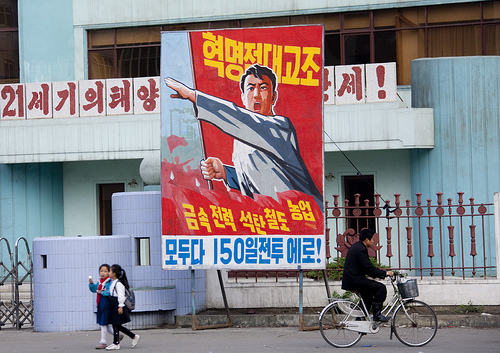Institute for Far Eastern Studies (IFES)
(NK Brief No.10-01-06-1)
2010-01-06
On January 1, North Korea published its annual New Year’s Joint Editorial in the Rodong Sinmun (official newspaper of the Central Committee of the Workers’ Party of Korea), Josonimmingun (newspaper of the Korean People’s Army), and the Chongnyonjonwi (newspaper of the Central Committee of the Kim Il Sung Socialist Youth League).
The editorial introduces North Korea’s general policy direction for 2010. In the international realm, the editorial highlights the establishment of a peace regime between Pyongyang and Washington, as well as improving inter-Korean relations. Domestically, the editorial focused on improving the standard of living for the people by improving agriculture and light industries. It appears that the North has decided to focus on domestic and international stability.
This policy approach appears to be an attempt to strengthen the basis for the North’s drive to build a ‘Strong and Prosperous Nation’ by 2012, but in the mid- to long-term, it also seems to have been adopted with Kim Jong-eun’s succession in mind.
This year’s joint editorial focused primarily on the North’s economy. More than anything, it centered on improving the lives of the people by boosting light-industrial and agricultural output. This was highlighted in the editorial’s title, “Bring about a radical turn in the people’s standard of living by accelerating the development of light industry and agriculture once again this year that marks the 65th anniversary of the founding of the Workers’ Party of Korea,” and was a consistent theme throughout the article.
Focusing on increased economic output specifically in light industry and agriculture, it is clear that the Kim Jong Il regime is seeking to boost public support by solving food and clothing shortages.
It is also noteworthy that in the editorial’s section on the economy, there is absolutely no mention of the ‘national defense industry’ that has been prominent in previous New Year’s Joint Editorials. National defense has been prioritized in previous joint editorials, with one article emphasizing that “everything necessary for the national defense industry must first be ensured in order to meet the economic line of the Military-First Era.” The defense industry was briefly mentioned, however, in the editorial’s section emphasizing the importance of scientific and technological development.
Substantial points of the economic portion of the editorial include the following:
– The need to “bring about a radical turn in the people’s standard of living by accelerating the development of light industry and agriculture once again this year that marks the 65th anniversary of the founding of the Workers’ Party of Korea.”
-“Light industry and agriculture are the major fronts in the efforts for the improving of the peoples’ standard of living. . . . an all-Party, nationwide effort should be directed to mass-producing consumer goods.”
-“The agricultural sector should sharply increase grain output by thoroughly applying the Party’s policy of agricultural revolution, like improving seeds, double cropping and improving potato and soybean farming.”
-“We should radically increase state investment in fields related to the people’s lives, and all sectors and units should supply fully and in time the raw and other materials needed for the production of light-industrial goods.”
-“We should gain access to more foreign markets, and undertake foreign trade in a brisk way to contribute to economic construction and the improvement of the people’s standard of living.”
-“Socialist principles should be maintained in commodity circulation, and the quality of welfare services should be decisively improved.”
-“The fundamental secret of making a new leap in this year’s general offensive is in launching a campaign to push back the frontiers of science and technology in all sectors.”
-“The defense industry sector, a major front in pushing back the frontiers of science and technology, should continue to lead the efforts to open the gate to a great, prosperous and powerful country.”

